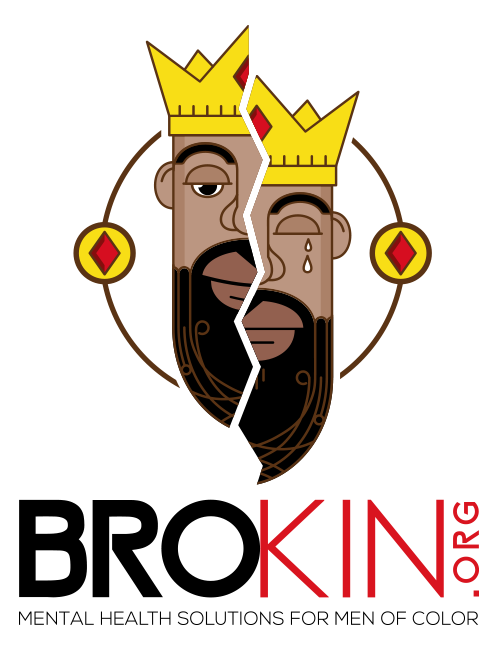Dr. Ifeanyi Ufondu Dives into Why Black Men Suffer with Depression during the Holidays
Despite devastating rates of suicide and illness, many Black Americans continue to suffer in silence—refusing the help they need.
According to the U.S. Department of Health and Human Services Office of Minority Services, Blacks are 20% more likely to report having serious psychological distress, like depression, than the general population. Yet, a past study published by the American Psychological Association indicates that young Black Americans, especially those with higher levels of education, are less likely to seek mental health services than their white counterparts.
1. Stigma
The myths and shame surrounding mental health issues can cause confusion and unnecessary pain. I recall a low time in my life when my ex insisted that “talking to someone” about my depression was a “waste of time,” as a counselor, doctor, psychiatrist, whatever, wasn’t really going to “care” about my issues.
I “didn’t need help.” I just needed to stop being “weak” and keep it moving. Sadly, this is how many men and women in our community view depression.
In fact, research shows that Blacks often rely on faith, family and community for emotional support rather than seek medical treatment. “You should take your troubles to Jesus, not some stranger.” Sound familiar?
According to Dr. Ifeanyi Ufondu, Clinical Psychologist and Founder of BroKin.Org – Mental Health Solutions for Men of Color, a Beverly Hills, CA based boutique psychological firm, “This cultural misunderstanding that a quick pray and a pat on the back is the end all for our mental health woes leads to a severe missing piece to treatment. It is vital that we gain and understanding in order to break the chains that bind us!”
RELATED: Top 3 Mental Health Issues Affecting Black Men
2. Lack of Black mental health professionals
“Only 3.7% of members in the American Psychiatric Association and 1.5% of members in the American Psychological Association are Black,” reports NAMI.
Naturally, the lack of Black mental health providers (who can relate to our concerns) creates the lack of trust touched on earlier.
3. Lack of knowledge
For example, a qualitative study by Alvidrez et al., in 2008, found that among Blacks who were already battling conditions like mild depression or anxiety, over a third felt that they would be considered “crazy” in their social circles.
RELATED: How to Recognize The Signs Of Depression In Youth
4. Socio-economic factors
In 2012, Black Americans made up nearly 40% of the U.S. homeless population, reports The 2012 Annual Homeless Report to Congress: Volume II Estimates of Homelessness in the United States. According to the 101-page study, of the reported 1.2 million homeless persons living in emergency shelters, 469,363 were Black.
In addition, research shows that Black males earn bachelor’s degrees at half the rate of white males (15.6 percent compared to 32 percent), making it difficult to gain employment.
Combine these factors (among others) with the constant exposure to violence in our homes, schools, and in our communities, and you have the perfect breeding ground for mental health conditions like depression, anxiety and post-traumatic stress disorder.
5. Trust
According to a 2013 study conducted by Ward, Wiltshire, Detry, and Brown, “because less than 2 percent of American Psychological Association members are Black/African American, some may worry that mental health care practitioners are not culturally competent enough to treat their specific issues.
This is compounded by the fact that some Black/African American patients have reported experiencing racism and micro-aggression from therapists.”
To add some perspective, in 2013, the death rate from suicide for Black men was four times that for Black women, reports the U.S. Department Health and Human Services Office of Minority Health.
Meanwhile, a report from the U.S. Surgeon General found that from 1980 – 1995, the suicide rate among Black Americans ages 10 to 14 increased by 233%.
The lesson here? It’s time to push aside the stigma surrounding mental health in our community and grab it by the jugular.
The Latest In Mental Health

6 Powerful Things You Can Do For Someone Grieving This Holiday

5 Foods to Stop Being S.A.D



